
Click play below to hear ways to incorporate silliness in the classroom:
Schools are full of engaging activities, creative lesson plans, procedures and routines, and assessments to assess mastery. And while all of those items are important, there’s one thing that’s missing in classrooms, and that is being silly. While teachers want students to have fun, being silly tends to be overlooked. But we’re here to change that. One of my favorite children’s authors, Mike Bender, stopped by to share how his new book, The Most Serious Fart, helps bring silliness into the classroom.
With such a funny title and character, Mike’s message in the book is so much deeper than a laugh or a silly moment. He shares why he chose silliness to be a message in the book and how that idea is actually where students, even adults, find and express joy. Our conversation goes even further into how education officials can prioritize silliness in the classroom and how teachers can easily incorporate silliness as part of their daily schedule and routine.
There’s so much intensity, pressure, and stress that kids are facing these days that it’s nice to bring silliness into the classroom and their personal lives. Mike’s book, The Most Serious Fart, talks about real-life situations kids have to deal with in a way that is light and fun. So be sure to check out his book and start to create opportunities to be more silly in your everyday life.
Meet Mike
In this episode on silliness in the classroom, we discuss:
- What led to Mike writing The Most Serious Fart
- Why silliness is the number one message he wanted to be received in his book
- The benefits being silly can have on students
- How a silly topic can be sophisticated through vocabulary and story structure
- Advice for those wanting to incorporate silliness
Resources:
- Sign up for my Private Podcast: Confident Writer Systems Series
- Check out the Stellar Literacy Collective Membership
- Grab a copy of Mike’s book The Most Serious Fart
- If you’re enjoying this podcast, please leave a review on Apple Podcasts!
Related episodes and blog posts:
- Episode 137, Build & Activate Background Knowledge [Small Steps to S.O.R. Part 1]
- Episode 110, Creating a Positive Perspective using The End Is Just the Beginning with Mike Bender
- Episode 101, A Literacy Routine for Building Students’ Sentence Structure Skills
- Episode 87, Breaking Down the Elements of Language Comprehension (and Practical Implementation Ideas!)
- Episode 11, Create a Reading Block that Supports ELL Students with Beth Vaucher
Connect with me:
- Join my newsletter
- Shop my TPT store here
- Instagram: @thestellarteachercompany
- Facebook: The Stellar Teacher Company
More About Stellar Teacher Podcast:
Welcome to the Stellar Teacher Podcast! We believe teaching literacy is a skill. It takes a lot of time, practice, and effort to be good at it. This podcast will show you how to level up your literacy instruction and make a massive impact with your students, all while having a little fun!
Your host, Sara Marye, is a literacy specialist passionate about helping elementary teachers around the world pass on their love of reading to their students. She has over a decade of experience working as a classroom teacher and school administrator. Sara has made it her mission to create high quality no-fluff resources and lesson ideas that are both meaningful and engaging for young readers.
Each week, Sara and her guests will share their knowledge, tips, and tricks so that you can feel confident in your ability to transform your students into life-long readers.
Tune in on your favorite podcast platform: Apple, Google, Amazon, Spotify, Castbox, and more! If you’re loving this podcast, please rate, review, and follow!
Podcast (stellar-teacher-podcast): Play in new window | Download
Sara
Hey there and Happy Monday. Welcome back to another episode of the Stellar Teacher Podcast.
Sara
I am truly excited that you are tuning in because today I have one of my favorite children’s authors, Mike Bender, he is back on the podcast to talk all about his new picture book.
Sara
Now, if you have been a longtime listener, then you might remember that Mike joined us last October to share his incredible picture book, The End is Just the Beginning. It is such a great story. And it really helps kids and adults shift their perspective around many of life’s transitions that we often view as endings.
Sara
Well, Mike has a new book out, and it’s not quite as serious as his last book. In fact, it’s pretty much the opposite of serious, it fully embraces and promotes silliness. So if you are in need of a lighthearted and fun conversation that is going to remind you, and ultimately your students not to take life too seriously, then you are in for a real treat today.
Sara
This entire conversation, put a smile on my face, and I really hope it does the same for you. So let’s jump into my interview with New York Times best selling author Mike Bender.
Sara
Hi, Mike, welcome back to the show. I am so excited to have you on the podcast today.
Mike
Thank you so much. It’s great to be back.
Sara
So you were on about a year ago, because you have a really incredible book, The End is Just the Beginning. And I personally love that book, I have shared that book with so many of my family and teacher friends. And you’re just an incredible author.
Sara
And I know that you have a brand new book that just came out. So congratulations on publishing another amazing children’s book. Now your new book is a little bit different. I feel like The End is Just the Beginning was a very serious, such a great message. But this new book, which is titled The Most Serious Fart was released on October 3. So can you give my listeners a little summary of what this book is about?
Mike
Well, I think you were right to point out it’s quite different from my last book, which was, you know, very sincere and, and serious. And I think maybe it’s a reflection of where I am in my own life.
Mike
You know, when I wrote that book, I was dealing with the Lyme disease and trying to work through work through that. And now the good news is I’m in a sillier place. So I was able to kind of approach this from a different point of view.
Mike
But the book is called The Most Serious Fart. The book is about a fart, who takes himself too seriously, and is determined to sort of change everything about what a fart is. And I have to say, like, I never intended or thought I was going to write a book about farts. I want to make that very clear. I did not. That wasn’t really where I started with this.
Mike
I had read an article almost a year ago, or maybe a little more than a year ago in the New York Times about an assistant principal, his name’s Toby Price. And he read over Zoom a book called I Need a New Bum!, which many people might be familiar with. It’s actually a very cute, also very silly book, but I enjoyed it.
Mike
And I he had read the book to a group of kids over zoom at that time, and he was fired from his job. Toby is pretty incredible guy has an autistic child, just a very sweet guy. And so you know that he got no complaints from the kids or from the parents, but they fired him. And so a lot of people might know the story. It got reported on quite a bit, but I got really upset.
Mike
And I was upset because I felt like we were just coming out of COVID. And the world is so damn serious. From a kid’s perspective. They’re doing drills at school for shooters, there’s viruses that are going around that could kill your grandparents. This is intense. And so I feel like if there’s any time that we need to rally behind silliness, it is now.
Mike
And so I had put something up on my Instagram at that time. And I don’t know why I said what I said, but it just is what flowed at the time, which is, I’m going to write a book, I’m going to write a book. That’s very silly. It was kind of like, I’m going to counter this by writing a book that’s very silly. And so I think farts came to mind.
Mike
Because farts are something that people often say like, oh, that’s, that’s, that’s very silly humor. And so I thought, let’s start there. But can I write something that’s thoughtful, that’s still about a fart, and something that’s somewhat sophisticated, but it’s a story about a fart. So that was the jumping off point, I always kind of have a challenge to myself to start. And that was the challenge on this one.
Sara
I love that you’re like, I’m, I’m not intending to write a book about a fart yet that’s where this went. I mean, to be honest, I never thought that I would have a podcast episode where I would have to easily like use the vocabulary term fart.
Sara
But I, I love how you know, I, I love just your writing style, and what you write about. And I really love how you think about very real life situations that people and kids have to deal with. And then you turn those into books that are accessible to students.
Sara
I mean, I know, on the last podcast episode you share about your struggle with Lyme and how that really was the inspiration for The End is Just the Beginning, and talked about how you know, transitions and how we can handle those transitions in life.
Sara
And so I love that you’re just like, you know, taking a real life situation, I remember when the Toby Price thing came out. And I remember feeling so bothered about that situation as well, because I just feel like teachers and school administrators are losing so much of their, their freedom and their autonomy, to do things that are in kids best interest. And so I love that you were inspired by something that really was an unfortunate situation.
Sara
And as a result, you came up with this really amazing children’s book. I have shared your book, Mike sent me a copy of the book ahead of time, and I’ve shared it with a couple of my nieces and nephews. And you know, you can imagine a book that’s has the main character of a fart would be very appealing to five and six year old boys. And let me guarantee Oh, let me assure you it is definitely it is definitely a hit.
Sara
Now, when you sent me a copy of a book, you also included a really thoughtful note, which I really appreciate it. And in your note, you said we live in the most serious world. And I wrote this book to teach kids about the importance of embracing their silly side.
Sara
And I know you kind of touched on it a little bit. But you know, out of all the messages and themes, I feel like there’s a lot of things that kids need to know and understand. So why focus on silliness, instead of something like kindness or empathy or acceptance, why is silliness like the number one message that you think kids need to receive right now?
Mike
Because I think it’s often overlooked. And I don’t want to in any way, disparage kindness and acceptance in those other those other themes, because they’re those are beautiful themes. And I think there’s a lot of writers that do talk about those things.
Mike
But I think silliness is one of those things where it’s kind of a throwaway, it’s like, oh, you’re being silly. You know, we just think of that as like, it just kind of means nothing at the end of the day. And I would argue that more and more we’re understanding even from a scientific point of view, and I’m fascinated by the science behind clay and silliness.
Mike
But that we really need this, we really need to be silly, especially as adults, we forget, we lose that connection to being a child. There’s a reason why children are silly. There’s a reason why children laugh at farts. And then think as an adult, you said, Stop laughing. That’s not funny. I think it’s worth taking a pause at some of that seventh thinking like, well, actually, it is kind of funny.
Mike
You know, we all have parents that at least my age that are that are starting to age and are farting all the time when you’re with them. And I gotta tell you to laugh and have a laugh. It feels great versus like holding it in and just trying to pretend like something didn’t happen. I mean, a fart is intentionally a very funny noise that comes out of our butts.
Mike
And if you can’t find the humor in that, then I think you know, you got to you got it, you got to ask yourself some questions. So I do think that silliness is a real is a virtue. And and there there should be more value placed on just being silly, the act of silly and taking the time to be silly during the day.
Sara
I think that is such a good reminder. And I have been in education, not for a crazy long time, but long enough to you know, remember when like pre K was more about play, and kids got to take naps in kindergarten. And there was just much less expectation for our youngest students.
Sara
And now I feel like every year we hear about these expectations of kids being expected to read by the end of kindergarten, and we don’t have time for naps, and they don’t have time for recess. And you know, there’s so much structure and I I love that you’re reminding us that silliness is something that we need to prioritize for our kids.
Sara
I even think as for adults, though you brought up a really great point you know, I feel like it when I read about things about whether it’s like self care, or you know, like, how to prioritize yourself, even for adults, they talk about the importance of play. It’s not just, you know, sleep and nutrition and movement, it’s about actually playing and laughing and experiencing those joyful things.
Sara
Do you ever think about what the long term impact would be sort of on both sides? Like, what happens if we continue to remove silliness from schools, and we don’t allow that virtue space to be cultivated in our students? Like, what’s going to happen if we don’t prioritize silliness? And then sort of on the flip side, what do you envision happening if schools and families could incorporate more silliness just in the day to day?
Mike
Well, to answer your first question, I think it’s a little bit like restricting kids from running and moving around, like kids naturally need to move around. So the idea of asking kids to be still all day is a mistake.
Mike
In the same way, it’s a mistake, if you have a dog to be like, Whoa, just sit by me all day and sip on the side, I’m working, right, that dog is gonna get, it’s gonna get really hyper and mischievous, and start grabbing things.
Mike
So like, I think that it’s in the nature of a child to need to move and play and be silly. So we’re denying them something that’s like really inherent to being a child. That shows you I think, how important it is to be silly for a kid and this and remind me your second point was.
Mike
What happens if we like, what do you envision happening as like the positive if we do you allow more silliness into our day to day lives?
Mike
Well, I think you’re gonna have kids that number one are less stressed out, you’re gonna have kids that have less anxiety, I mean, silliness is an amazing way to deal with anxiety.
Mike
I, as someone who has dealt with anxiety, which is which, which is one of the beautiful byproducts of things like Lyme disease, and some of those other conditions. Like I’ve done laughter yoga, I have danced in the morning, these are things that I naturally gravitated towards doing before that.
Mike
But man, you take somebody and have them dance for five minutes and, and tell me that you don’t feel different after you’ve done that. Again, it’s like, we think of those things as well. I don’t know if I have time for that I’m really busy. But those are the things we should be prioritizing.
Sara
I love that. And I think like just the reminder of like, you know, we often say I don’t have time for that, like, I’m so busy. I think the same is true, like in schools, oftentimes teachers, and it is no fault of the teachers, like teachers often don’t feel like they have time to enjoy a story just for the sake of a story or to like you said, like, put some music on and let your students dance and just experience the joyfulness of being silly.
Sara
And I know that so many teachers in my audience would really like to ease up on some of the like pressure and the structure and the expectations that they have in their classroom. And I know that they are faced with pressure from their school administrators and their district officials, you know, whether they’re pushing state testing expectations, or really rigorous expectations, or I know, you know, unfortunately, in a lot of states, there are now book limitations on you know, teachers can no longer decide the books that they want to read.
Sara
So, you know, what advice would you give to teachers who want to be more silly? Because I know, if teachers had freedom, they would want to have more silly moments. But what do you wish that school administrators and district officials knew when it came to the importance of silliness? Like if we’re going to sort of make a movement here, what do the leaders of our educational system really need to understand?
Mike
Well, I think kids do better on I think this has been proven, you know, when they’ve introduced like things like mindfulness and meditation into schools, and even in my public school, there’s, they are being more open to things like mindfulness and meditation. And, and there are some beautiful studies around that. And seeing like, kids test scores go up, their attention spans are better. I think the same thing with silliness.
Mike
To me silliness is mindful. Because when you’re being silly, you’re just being silly. You know, there’s, there’s nothing else that’s going on other than you’re laughing, or you’re being silly, or you’re playing or whatever it might be.
Mike
I think about like, kids when they skip, I feel like skipping is such a beautiful metaphor, because as adults, we stop skipping at a certain point, because we feel like it looks silly. But again, try to skip and not feel, feel like try to be in a bad mood and skip, try to have an argument with your partner or spouse while you’re skipping. You can’t do it. It’s that possible.
Mike
Those, that’s our that’s the state. That’s our natural state. That’s our resting state is joy. And so I think if I were to say anything to school administrators, I’d say that all the things you want to accomplish, will only be it will only be benefited by allowing some time for kids to just be silly, nothing else.
Sara
I love that and I think time for teachers too to just be silly. You know, as adults, we need to have more time in our day with that freedom to just Like you said, whether it’s skip or dance or listen to music.
Sara
I always think too you know, it’s just like, it’s like if you’re in a bad mood, yes, people say just like go look at yourself in the mirror and smile. Because once you start smiling, it’s hard to stop smiling. And it’s hard to be in a bad mood. And so it’s just like, sometimes we have to force ourselves or create these opportunities that naturally will make us more joyful human beings.
Mike
And also, I just want to say that, Toby, right where this all began, Toby is the one who chose he chose to read that book, because that book, he was reading at a time when there were so many intense things going on. And he wanted to read something silly to the kids, he wanted to give the kids something to just laugh about.
Mike
And I thought that was so admirable to me, Toby is, is heroic, and he lost his job as results. And it was very difficult for him. Fortunately, he did a GoFundMe that got, you know, people really jumped in and tried to help him.
Mike
But I did reach out to him. When I had a finished copy, I wanted to let him know that he had inspired me to write the book, I wanted him to know that, that a lot of good is probably come from what he did, while while it sucked how he was treated.
Mike
And since then, we’ve been we’ve been kind of buddies and talking. And it’s just great to get to know him and hear his side. But I think he was the one, at least for me, that really made me think about the importance of silliness.
Sara
It’s so unfortunate what happened. And I wish that we had more teachers who were like, Toby, really, ultimately, I wish we had more administrators and more district officials who are like, you know, what, because like you mentioned at the beginning of the episode school, I think can feel so heavy for kids, you know, there’s so much pressure, there’s so many serious things that are happening in the world.
Sara
And as much as we try to shelter students from that and protect them from those big heavy things, like kids know about stuff, you know, the fact that kids know about school shootings, and they understand that COVID was a, you know, a really, like, tragic virus that happened to so many people like kids are I don’t know that that added pressure and stress needs to be dealt with. And I think one of the best ways to deal with that is through silliness. So hopefully, more teachers feel inspired to be like Toby and just intentionally incorporate silliness.
Sara
I am going to consider you though, my silliness expert, since you seem to know a lot about it. Now, even though your book is really silly, it does have a lot of sophisticated vocabulary.
Sara
As I was reading it, you know, I mentioned earlier, I have shared it with my five and six year old nephews. But I can envision this being such a great story to read, and third and fourth and fifth grade classrooms. Because the vocabulary is so great, you know, you include some pretty big words like disarray, squabbled cacophony.
Sara
So as you’re writing a book that is pretty silly and unnecessarily topic about farts, you know, Is it challenging to write this really silly story, while at the same time also incorporate some very high level vocabulary words? Like how does that sort of combination work?
Mike
I think that’s the fun of it, for me, again, is like the challenge of writing about something that is traditionally very sophomore in nature, but then to give it a level of sophistication. So that was a very conscious decision to use, you know, vocabulary words that might be a little more challenging for the younger readers, but also, that might make them want to go figure out what what is that word that says.
Mike
Because words also, even when you don’t understand a word, I mean, their words, even at this age, I hear that I might not even know what it means. But I go, that’s a really interesting sounding word. I like that word. Or maybe in another language, I hear the word.
Mike
So, you know, squabble, for example, that gives you a certain feeling without even knowing what that word is. So I think as a writer, you have to love words, right? Just to be doing what you’re doing. And and so for me, I love the sound of words, I love just the act of kind of organizing words within a within a page or a sentence or a paragraph.
Mike
And so I just wanted to infuse the story with as much sophistication as possible, whether it was just words or even, you know, Beethoven, this fart loves Beethoven, Beethoven, and he carries a briefcase, and he reads financial newspapers. He’s a very sophisticated fart. And so, again, like that, I think that juxtaposition of something like a fart with something sophisticated is just, that’s fun. And it’s also like, kind of unexpected.
Sara
Yeah, I love that. In your writing, I noticed, and again, I love words, I love stories. I love just sort of really getting to understand the author’s brain and like why they made certain decisions in the writing process.
Sara
So in this specific book, you also chose to write it in a very lyrical way with a really strong rhyme scheme, which I think can be so great because it really presents so many teachable moments for teachers beyond just the comprehension of the story. I always think something that has a very lyrical, you know, tone to it would be great for our National Poetry Month or anytime teachers are jumping into those standards.
Sara
Was there any specific intention behind including the rhyme scheme, or did it just sort of happen like that? Like, how did this sort of like structure of the story come about?
Mike
Very honest with you, Sara, I was extremely intimidated about the rhyme part. Because I had never written anything in rhyme. And I know and I’ve read books that do well, it’s really quite hard to do that. And so I kind of had to study a lot of books. And I initially wrote the story in a way that it was not in rhyme. I just wrote it out.
Mike
But then I felt when I started to rhyme, I think, when you have funny words, like, I’m not looking at the book right now, but flatulence or something like that, when it’s when it’s being rhymed, it almost hits the punch line harder. There’s something funnier when you’re using funny words, rhyme can be a real advocate, it can be a real helper in that way.
Mike
And so I think that was for me was kind of like, I remember speaking with my, my literary agent Jeanine, who’s also like, like, also an editor at times, you know, we went back and forth on that she was just like, ultimately, like, for the humor aspect of this, the rhyme is going to serve you better than then if you just, you know, if you did it without it. So that was it.
Mike
But I was, I was very intimidated. And I actually had someone, a poet who read the manuscript early on, and was giving me notes. And it was making my head spin when they were talking about, like, anyone who really, really, really knows rhyme, but I did, I broke some rules. And I apologize for that for all those people out there.
Mike
But at the end of the day, I was like, Well, I have to make sure that this also is funny for kids. And so they’ll forgive me a little bit, you know, in some in some aspects. But yeah, that’s that’s kind of how I arrived there.
Sara
Well, I love it. And I think you actually did a really great job of the rhyme scheme in it. And I always love from a teacher standpoint, I loved reading poems or stories that had a rhyme scheme that didn’t 100% follow the traditional rhyme rules.
Sara
Where it’s like, you read a word, and it’s like, if you were going to read the word on its own, you would read it differently than if it was in with the rhyme scheme. And I think it sort of just encourages students to be like, Well, wait a minute, hold on a second here, like, why is it gonna be pronounced differently? Or I want to say it in a certain way.
Sara
So I think anytime you do kind of bend the rules, it just sort of encourages students to be a little bit more mindful of what it is that they are reading.
Mike
Thank you. Well, I’m gonna reference you whenever I get flack.
Sara
Yeah, absolutely. So okay, one of the things that I think is really cool about your new book, The Most Serious Fart, is that it had the opportunity to be read by Ryan Reynolds on his new show, Bedtime Stories, which is on the Maximum Effort channel now.
Sara
I am a huge Ryan Reynolds fan. I think everything he does is hilarious. How did you get connected with him? Like, how did you get him to read your book? And I would love to know, like, What was his reaction to to the story?
Mike
Well, I have a weird Cosmic connection to Ryan Reynolds.
Sara
I want to know what this cosmic connection is. And how do I get one?
Mike
Years ago, I was very young. But I when I was first started out, I was a screenwriter. And one of my friends at the time, was another screenwriters, this guy, Adam Tex Davis, and he was writing a movie called Just Friends. And my brother actually was a producer on that. And everyone was everyone was young at this point, but including Ryan. And when they shot that movie, the characters in the script, I don’t know if you know Just Friends.
Sara
I don’t think I don’t remember it. I feel like I’ve heard of it, but I’ve never seen it. Yeah, I’ll have to go watch it now.
Mike
Oh, it’s a great movie. It’s a great Christmas movie. But the characters names and the movie are Chris and Mike Brander. So my brother’s name is Chris. So I’ve always I’ve always thought someday I’m going to meet this guy. And I’ll be able to, I’ll be able to tell him that.
Mike
But I had no intention of getting it to Ryan Reynolds initially. I have to say like, I have the most incredible literary agent in Janine Kamouh, who’s just amazing. And I’ve been with her for many, many years. And she’s just like, she just she always brings me these little gifts.
Mike
But she happened to be friends with the guy that was producing this show for Ryan. And he was looking for books. And what’s what was interesting is the traditional publishers, they were having a lot of trouble getting books from the traditional publishers, because they have weird rules around books being read.
Mike
In fact, when I worked at Random House, one of the things that always frustrated with me was I wanted to get the books read online, by readers by teachers. There’s so many great readers now on YouTube and TikTok and Instagram, and they have a policy they don’t want the books to be read, like as if that is going to affect sales doesn’t make any sense to me.
Mike
But this time around. I’m working with a very non traditional publisher, a genius cat, and they’re awesome and there’s so much more freedom. And they’re like, yes, absolutely do it. And so, Janine got the book over to the production crew over there. And they immediately were like, this is perfect for Ryan, because, you know, you know, his humor.
Mike
And so I think that was one of the first books that they that they actually locked in. And it was just a thrill. Like, that’s something I’ve always wanted is to have somebody like him, read the book. And so it’s still surreal to be honest with you to watch the video and think that he read it. That’s awesome. just such a cool, cool thing that happened along the way.
Sara
Yeah, absolutely. So let’s circle back here. As we wrap up this interview. One of your goals with his book is for kids and adults to embrace the silliness. So what advice do you have for teachers and parents who do want to help students embrace silliness and not take themselves too seriously?
Mike
Take the time to incorporate intentionally silly exercises, or silly moments into the day, that might be standing up for 15 seconds and just shaking your body uncontrollably and just having like a big shakeout that might be we’re going to do a 30 second dance at the beginning of every class.
Mike
That might be we’re going to on our way to the you know, cafeteria, we’re going to try to step on every crack we see, instead of trying to avoid every crack, let’s let’s step on the cracks like anything. And I think that the beauty of silliness is that it can be short little moments.
Mike
I think, you know, like, that’s the key is just having some time, so that kids understand that as adults, we value silliness. We want you to be silly. Silliness is not something that you get put in the corner for Yeah, it should be something that we celebrate. So I think that’s, that’s what I hope.
Sara
I love that. And I think like all of the things you mentioned, I can just envision, like if teachers do those things, those are the types of things that when a student goes home, at the end of the day, they’re going to tell their parents about right like not I read this book or learned the thing. It’s like, oh, on the way to lunch, my teacher told me to step on every crack, like those are the types of things that our students enjoy and helps them feel like kids.
Mike
School is so fun. I got to I got to do this today. Absolutely.
Sara
Yeah, I love that. Well, Mike, thank you for writing such a silly book and for being an encourager of the importance of silliness. I, you know, we all need to have more fun and more joy in our life. And I feel like this book is such a great reminder of that. So thank you for writing it.
Sara
Final question. You know, you were on the podcast a year ago with a book that came out, you’re on the podcast now. So if you come back in a year from now, what book are you going to be? What book are you going to be promoting? Do you have anything that you’re planning to write working on? Do we get any any preview of what might come in the future?
Mike
I do. Something I realized I gotta mention, as, as I talk about the next book is that one of the key aspects to The Most Serious Fart was connecting with my illustrator. And I didn’t get to mention my illustrator. But I do want to quickly just mention that Chuck Dylan, who I have been a fan of for a long time is a highlights, like, if you ever open highlights magazine, and looked at the hidden pictures, Chuck is like the hidden picture, guy.
Mike
And so I have been a fan of his for a while, I’ve been obsessed with his hidden picture puzzles. And so he was the person when I had the chance to reach out to an illustrator that I wanted. He was like my number one choice. And thankfully, he did it. And so he brought so much detail in to this book.
Mike
You know, Sara, you saw the book, like the level of detail, and some of that is incredible. And that’s, that’s a testament to Chuck. And he also hid over 300 butts throughout the book within the pictures, because he can’t help hiding things in pictures. So I have to, I just have to give credit to Chuck like, Yes, I wrote a book. That was silly, but Chuck brought it to life.
Sara
I mean, I was gonna say that it’s it feels a little weird to say this, but the illustrations are beautiful. So it is just, you know, it’s a book about a fart, but the picture is seriously they’re gorgeous.
Mike
He painted, those are hand painted. Every single fart is hand painted. So he also was very mindful about being like, we’re not going to just like draw typical like clouds, basically see in a fart picture. He really wanted to make it artistic. And so for me, I just I have nothing but but respect and love for Chuck.
Mike
And so we have such a great experience. We’re working together again. I had a project I think I mentioned to Sara the last time we spoke called Bored Panda at Random House. Finally we have been looking for an illustrator. And so after this Chuck has come on board officially. And so Bored Panda is in the works. The illustrations are being done now.
Mike
And so that would be the next book and that one, just to remind you and anyone listening is about boredom being a window into creativity and sort of looking at boredom as this kind of like, wonderful way into discovery and creativity.
Sara
Well, I cannot wait to have you on the podcast again to talk about that book and just the importance of allowing space for boredom because I’m sure.
Sara
But in the meantime, where can my audience find you? And if they want to either connect with you or learn more about your new book, The Most Serious Fart, where can they find you?
Mike
Yes, well, I hope I hope everyone will share this silliness with the kids in their lives with any any people they know. And even with adults, I always talk about children’s books like give them to adults too Yes, children’s books work for everyone.
Mike
They can find me at iamMikeBender on Instagram. That’s the best place iamMikeBender, and I post all kinds of silly stuff there. So hopefully people can can follow me there.
Sara
Awesome. We will post a link to your Instagram profile as well as a link to purchase the book in our show notes in case any of our listeners want to connect with you.
Sara
But again, Mike, I always love connecting with you. I love the books you write. I love the messages that you want to share with teachers and students. So thank you for being just an advocate for education and literacy. And thank you for coming on the show again, it was fun to chat with you.




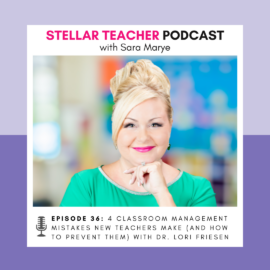
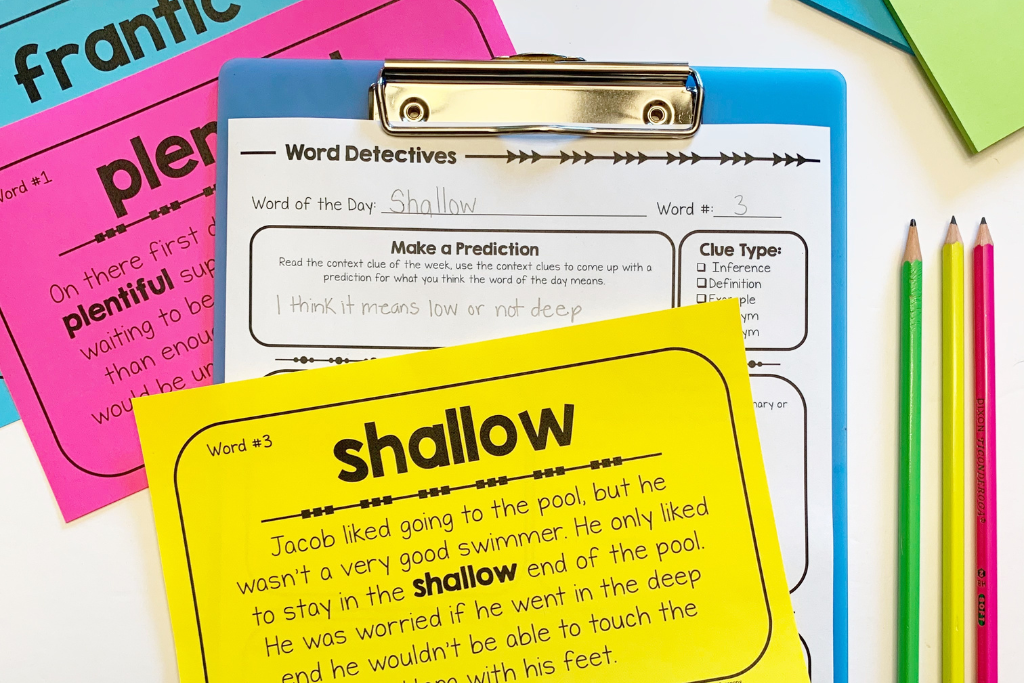
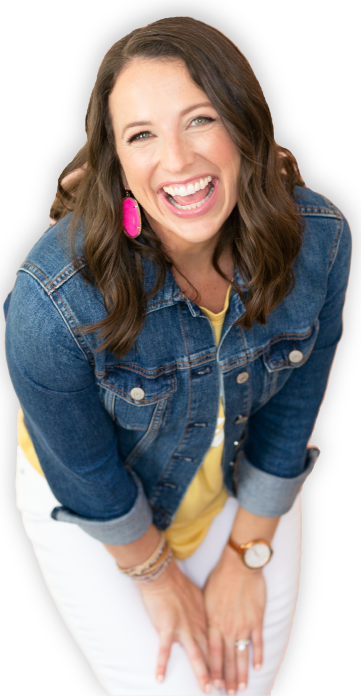
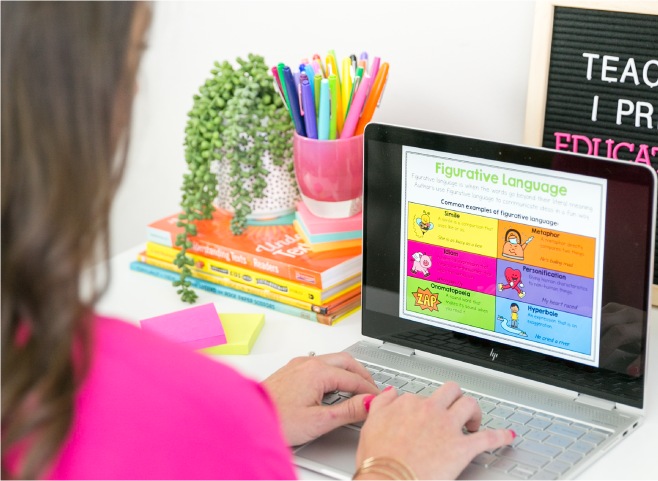
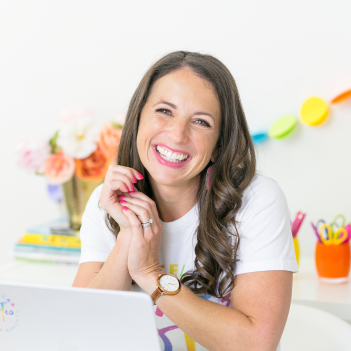
Leave a Comment
You must be logged in to post a comment.